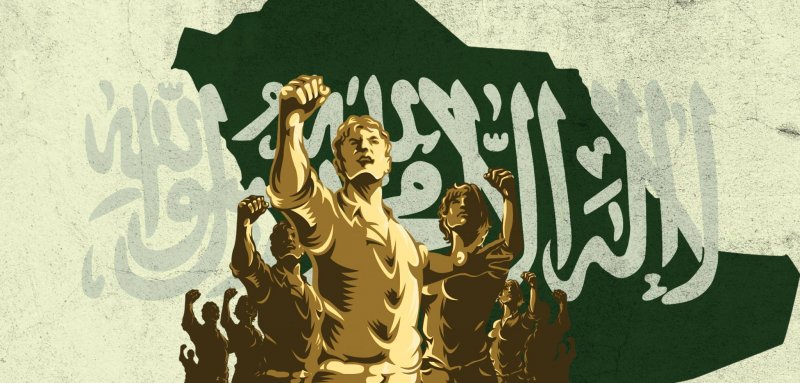In a protest in front of the Saudi embassy in Berlin held on the 10th of October 2019, Saudi activists and their supporters from various nationalities, as well as human rights groups such as "Reporters Without Borders", raised banners condemning the policy of executions and calling for the suspension of capital punishment especially against political activists. Those present held up photos of dissidents sentenced to death, calling on the Saudi regime to spare their lives.
The protest comes a year after the killing of Jamal Khashoggi. Today, at least 39 individuals are facing the death penalty in the kingdom, while more than 83 bodies have disappeared since 2016, including children – according to the European Saudi Organisation for Human Rights (ESOHR), the group which organized the protest.
Many Saudi citizens today are living in forced exile as a result of the political repression in the kingdom and their fear for their lives and personal safety, according to Ali al-Dabisi – the Director of ESOHR. In an interview with Raseef22, al-Dabisi said that the number of refugees has multiplied under the watch of the current King.
Raseef22 was in conversation with a number of Saudi activists during the protest.
We Are Hopeful, the People Are Strong
Ali al-Dabisi is a resident of Berlin, and was an organizer of the protest in front of the Saudi embassy. Al-Dabisi left Saudi Arabia in 2013: "I had been arrested twice and threatened, and didn't wish to be arrested a third time." When we asked al-Dabisi about the reasons for his arrest, he explained that since 2011 many arbitrary arrests had taken place in the kingdom, often for no reason; the arrests were akin to the taking of hostages in order to control any protests or mobilizations. Al-Dabisi affirmed that he had not taken part in a protest, but was instead arrested at a checkpoint after police found social, political and cultural books and papers in his car.
On the human rights situation in Saudi today, al-Dabisi says that the government is engaged in a total conflict with the principles of human rights, as their thinking and political interests are at odds with the idea of human rights – since it would encompass political participation, the sharing of governance and combatting corruption in a genuine and not symbolic way. On the latter, al-Dabisi says that the Crown Prince Mohammed Bin Salman sought to deceive the people through arresting some businessmen. In other words, there is a total incongruity between the Saudi government and human rights, whereby we find that some decisions in the past few years have political motives which are not aimed at genuinely reinforcing human rights. Al-Dabisi continues: "Mohammed Bin Salman is selective in adopting the reforms that conform to his interests, for he had declared that "we will bring back moderate Islam" – he would draw on tolerant religious values, but when we look at the courts we find that they are using the most extreme, violent and bloody religious conceptions, and the narrowest of Islamic scholarly opinions are still used for killing and even torturing Saudis."
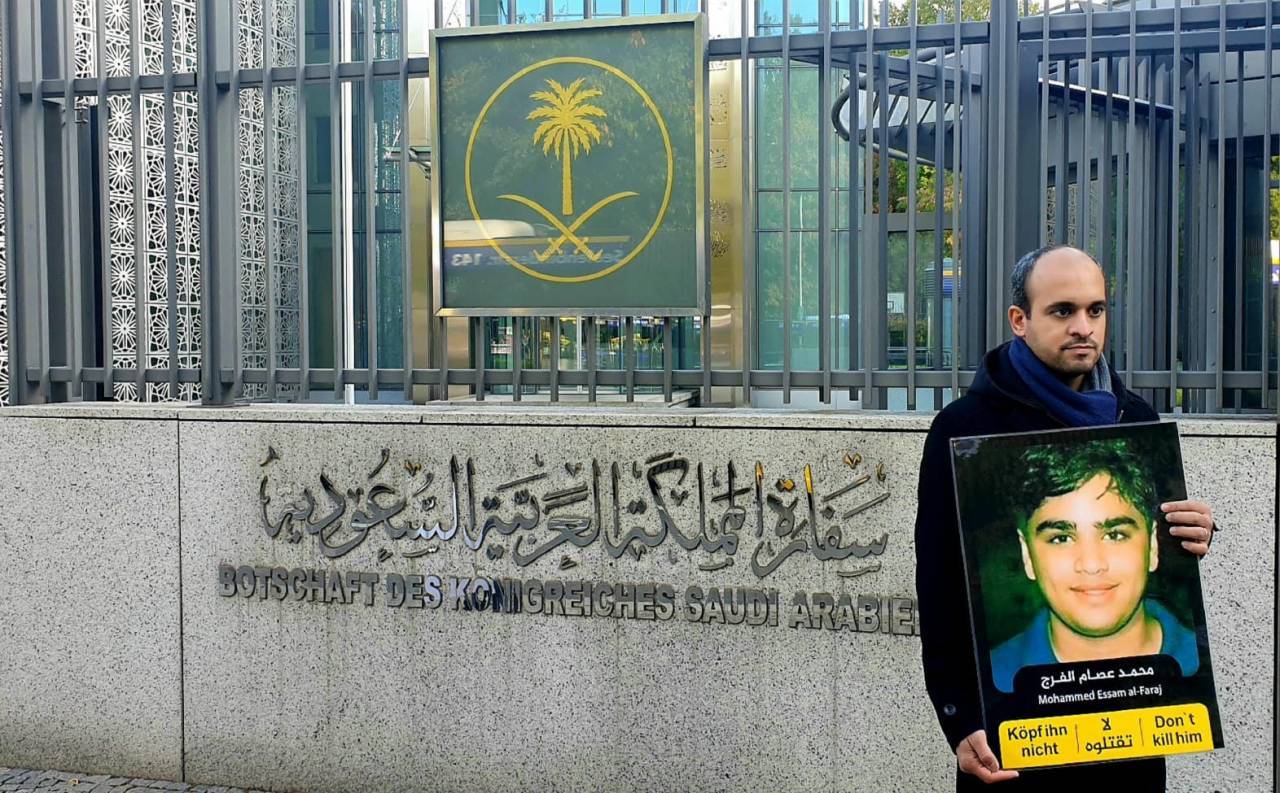
When we asked al-Dabisi whether he feels any worry or fear in his forced exile, he responded that the Saudi government is a criminal regime that would not stop targeting those who have migrated abroad, continuing: "One of the main roles of Saudi embassies abroad is to track and monitor the emigrants through various means in order to stop their activism and control them, as well as to return the emigrants to the Kingdom whether through 'soft' or 'hard' means – at times with threats and at other times with honeyed words, and so as an emigrant in exile amidst these embassies I am of course not safe."
Nonetheless, Ali al-Dabisi has hope for change and belief in the people; however, in his view the people – both those inside the Kingdom and those abroad – are not the only variable in the equation, for there are regional powers that also play a vital role. He adds: "The insanity of the Al-Saud and Mohammed Bin Salman in particular [is also a part of the equation]… but in any case we are hopeful about tomorrow because we are working towards it, but there are many other variables and we are not the only influential ones. We hold fast to hope and in the end, the people are stronger than tyranny, and we see tyranny retrenching in the Arab World. The modern world rejects the notion of totalitarianism, but Saudi Arabia imposes it with iron and fire."
Today, at least 39 individuals are facing the death penalty in the Saudi Arabia, while more than 83 bodies have disappeared since 2016, including children.
"Mohammed Bin Salman is selective in adopting the reforms that conform to his interests, for he had declared that "we will bring back moderate Islam" but when the courts are still using most extreme measures."
Wahhabism and Human Rights
Adel al-Sa'idi left Saudi Arabia in 2012, and came to Berlin arriving from the German city of Magdeburg. On his evaluation of human rights in Saudi Arabia, he states: "My country is an absolute monarchy, which never cared about human rights – however some were tolerant of this reality to a certain extent until the Arab Spring arrived."
Indeed even previously, according to al-Sa'idi, there had been reformist voices but not a large wave; however, after the ascension of King Salman to the throne a certain mobilization began, with a wider proliferation of voices and calls for reform, including the "Hassm" (Resolve) movement and protests in the Eastern Province of Saudi Arabia.
The main driver of this movement was a group of human rights demands, including the release of those imprisoned without trial and the end of discrimination in general, amongst other demands. There were also more specific demands for the end of discrimination against Saudi Shias including in employment, and to end the targeting and repression of Shias as well as calling for the release of detainees who had not been subject to trials – both Sunni and Shia.
There was also a large political and human rights movement led by the "Hassm" movement, whose leaders were all arrested in 2015 with the ascension of King Salman to the throne. After he succeeded in taking control of the junctures of power, repression increased in the Kingdom; according to al-Sa'idi, the regime was no longer content with arresting its opponents, and instead sought to arrest even those with partial opinions in the event that they were not fully in line with the state, as with the case of the renowned cleric Salman al-Ouda, who refused to support the Saudi blockade of Qatar and was arrested for this reason. Yet al-Ouda did not openly declare his opposition to the blockade, instead only praying to God for "the Muslims to reconcile with one another" on Twitter – only to be arrested on that basis.
Al-Sa'idi adds: "Cases of execution in Saudi previously did not reach this scale, but in 2016 Nimr al-Nimr was executed as well as some protesting children, to add to the dozens who were subject to unfair trials in penal courts. Today however there is a major escalation whereby we find thinkers, children, those with certain opinions and protesters in prison. There are dozens of detainees who are charged with holding certain religious opinions, and there are other detainees who are mainly children, charged with protesting or attending funerals, with some only ten years old."
Al-Sa'idi continues: "There is a serious atmosphere of repression and using stringent religious texts, in addition to a state of severe bloodiness taking place now in Saudi Arabia. Of course, when the state executes important and influential figures, these executions form a bridge enabling the execution of more individuals and activists."
Responding to our question on whether he feels fearful or safe in his exile, al-Sa'idi answered: "I feel relatively safe here, although there is no perfect safety anywhere in the world… but here is of course safer than Saudi Arabia. It is certain that after the kidnapping of Khashoggi and his detention at the Saudi embassy before his body was dismembered and perhaps burnt, there are some analyses speculating that there is a new policy that is deployed towards opponents and activists abroad; nonetheless, opposition is a decision we have taken and these operations will not reduce from our determination. Even when we were protesting inside of Saudi Arabia and the repression was more, with protesters being shot with live ammunition on the streets, this would not change the equation ever and will not deter us."
On the main demands made by activists now, al-Sa'idi says that the foremost one is to stop the sentencing of opponents and to release the detainees, because if the death sentences are executed the state would not be able to correct these mistakes in the future, and so families that have lost their children will be in a stae of permanent mourning and nothing will change if the situation in Saudi was altered; therefore, al-Saidi says: "we are calling for the suspension of the death sentences now."
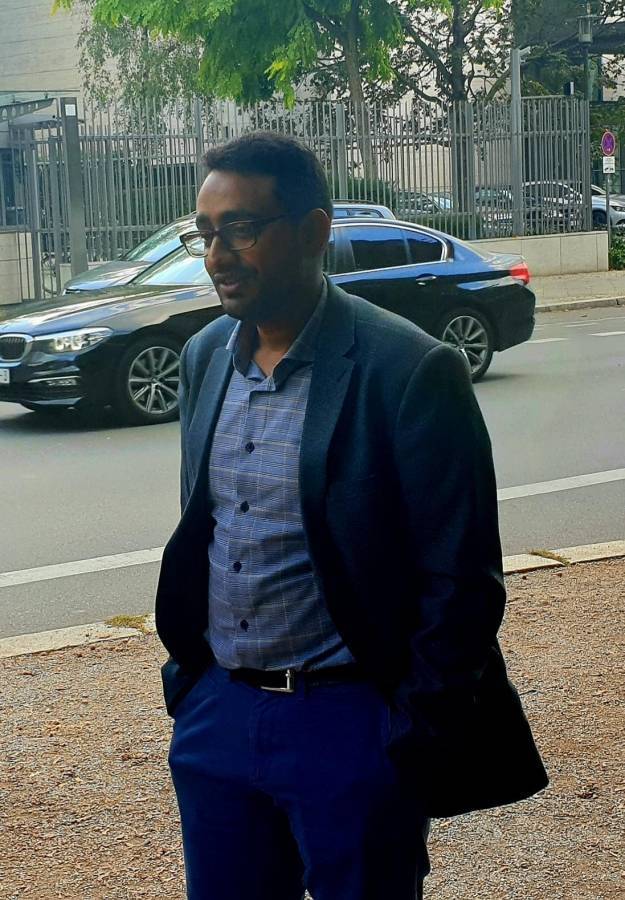
Al-Sa'idi adds that other demands include "granting freedoms and the right of the people to determine their fate and choose the form of government they want. The state must provide the space for the population to participate in political decision-making. Furthermore, the war in Yemen must stop along with other frivolous wars that exhaust the resources of the state and cause war crimes and crimes against humanity in other states."
Al-Sa'idi believes that it is impossible for Saudi citizens to gain their rights so long as Wahabbism continues to exist in the state. He concludes by saying that in the end nothing remains the same forever, adding: "Whether my hopes are achieved sooner or later, this does not affect my political activism and my struggle against injustice and abuses because this is a principled position. There is a serious interplay of interests today in the world, and change is not an easy goal but we continue to persevere so that our tomorrow is better than today."
Wahhabism Archenemy: the Shia
We also met Abu Abdul Rahman from Saudi's Eastern Province, who left his country for the first time in 2014 to the United States, before being returned to Saudi Arabia. In a conversation with Raseef22, he explains: "After I was pursued by the regime I escaped again to Germany. I preferred it to the United States this time, as there is protection in Germany; furthermore I had no one to support me financially in the US, as I am a disabled man; in Germany however I receive my full rights."
Abu Abdulrahman had arrived from the German city of Bremen to participate in the protest, and adds that he was a "former soldier in the counter-terrorism units, and I have papers to prove it, but the Saudi government now is the one supporting terrorism and ISIS."
On the human rights situation in Saudi, Abu Abdulrahman says that the state enforces sectarian discrimination against the Shia, adding: "We are targeted because of our religion and in the name of religion. I believe that half the Saudi government belongs to al-Saud, while the Sharia belongs to the Wahabbis. The Wahabbi Sharia is totally against human rights and myself as an oppressed Shia."
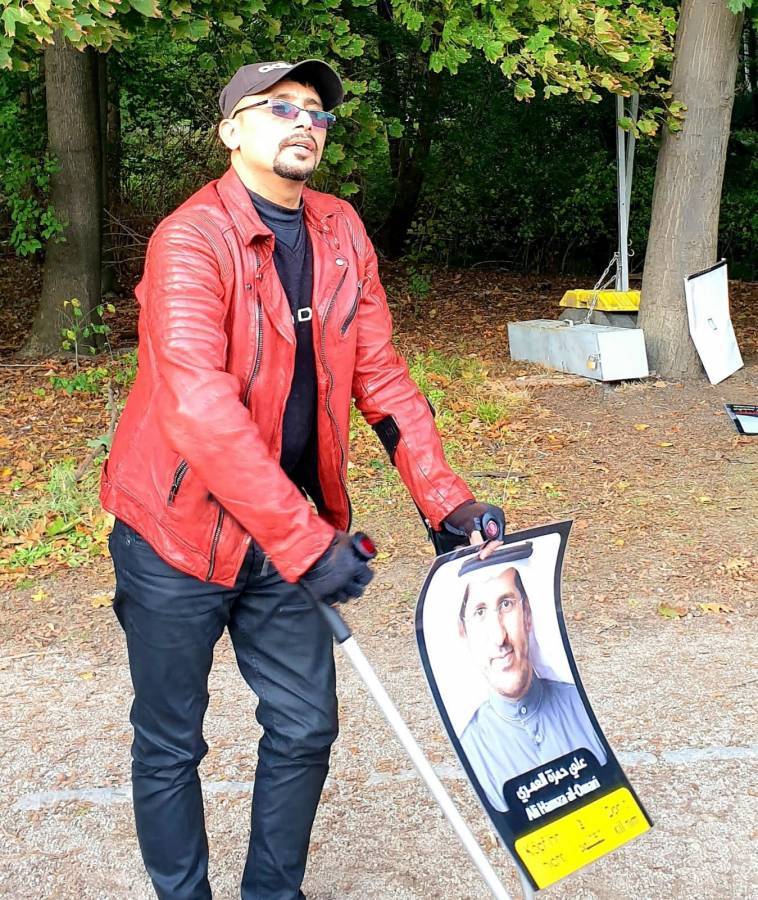
On whether he feels safe in his forced exile, Abu Abdulrahman declares: "When I arrived here I was stabbed with a knife and entered a hospital; I submitted a legal case only for my room to be raided and my personal documentation and bank papers to be stolen by mercenaries here. The German authorities succeeded in arresting them and they found my stolen papers with them. One of them is imprisoned now, and my belongings were found in his house."
He continues: "I am still in a state of fear in Germany and always stay in the house. This is the first time I leave my home. I always complain to the German authorities that I am in danger, and my house is two kilometers away from the nearest bus stop. That is a danger to my life because I am pursued and followed."
On his main demands, Abu Abdulrahman declares: "My main demands are for the Shia to be granted all of their rights. My cousin is currently in a Saudi prison and sentenced to death on the charge of being an Iranian spy, without any evidence."
On being asked on whether he sees hope for reform and change, Abu Abdulrahman responded bitterly: "No, there is no hope for change except after the downfall of the regime. It is impossible to be granted your rights as a citizen so long as Wahabbism exists in the state."
Under Pressure, Reform Is Possible
Our last meeting was with the activist Yahya al-Asiri, the head of the "ALQST" organization for advocating human rights, who arrived especially from London to participate in the protest. Al-Asiri had left Saudi Arabia in 2013 because of the violations of human rights there. He told Raseef22: "Unfortunately, the human rights situation in Saudi Arabia is moving from bad to worse; we used to complain of the regime's violations in the past, but there was room to challenge it; now however all of those who have the capacity to challenge the regime and say no, or even oppose the regime indirectly, are behind bars or had to flee abroad. As for our friends now in Saudi Arabia, none of them are free, they are all now in prisons."
When questioned on whether he feels fear or safety in exile, al-Asiri declares that he doesn't set too much in store by his personal life, as this could impede his work. "The really frightening thing is the state of the country" he says, "for the country now is heading towards a very fearful reality, not only from the aspect of human rights but also on the political and economic levels."
Al-Asiri confirms that there is no one inside Saudi Arabia, from any ideological current, that can oppose the regime. "The regime used to toy with the ideological currents in the past, but now it finds no use from this manipulation, and sends everyone to prison – this is from the aspect of human rights. From the economic dimension, the largest Saudi companies are in danger, after Mohammed Bin Salman took the decision four-and-a-half years ago to launch the war in Yemen, leaving the most important Saudi companies on the brink of bankruptcy."
Al-Asiri continues: "The Saudi authorities do not have any real allies now at all; even Trump repeated more than once that he is allied with Saudi Arabia for money, while Egypt and the United Arab Emirates are ready to abandon it at any moment; furthermore, the ruling family is disintegrated, as is the society to a large extent."
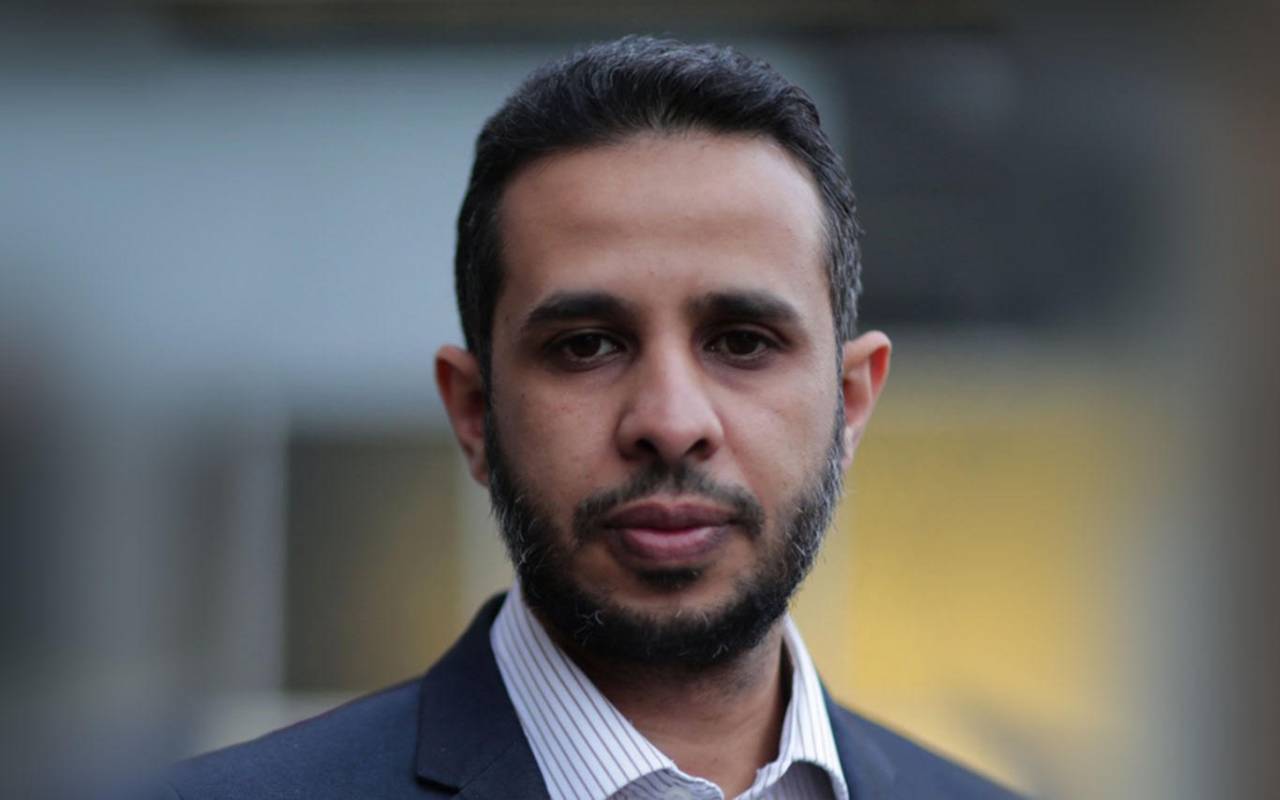
He continues: "Our main demands today are a state of rights and institutions, in which human rights and freedom of expression are respected, and where people can live their lives in a natural and free state; furthermore, there must be institutions that govern the state and not the totalitarianism of tyrannical individuals."
On his hopes for change, al-Asiri believes that the hope lies in the new generation which cannot be deceived like the last one, stating: "I have hope in this generation that it will continue to pressure Mohammed Bin Salman and the Saudi leadership which has nothing to peddle with as in the past. It used to peddle in Wahabbism and the control by the ruling family over the oil, all of these issues are no longer available for manipulation as they are themselves in danger now; therefore, strong internal and external pressure can push the Saudi regime towards real reform, and this is what we hope will be achieved."
Raseef22 is a not for profit entity. Our focus is on quality journalism. Every contribution to the NasRaseef membership goes directly towards journalism production. We stand independent, not accepting corporate sponsorships, sponsored content or political funding.
Support our mission to keep Raseef22 available to all readers by clicking here!
Interested in writing with us? Check our pitch process here!
